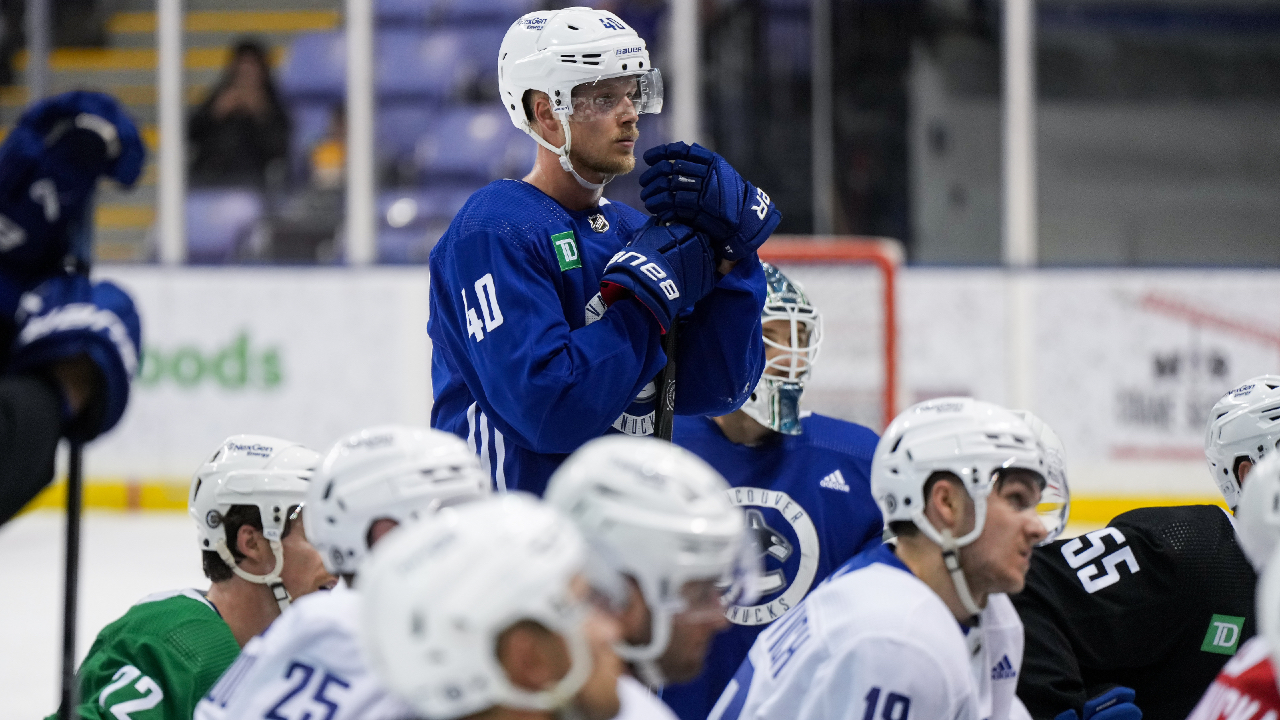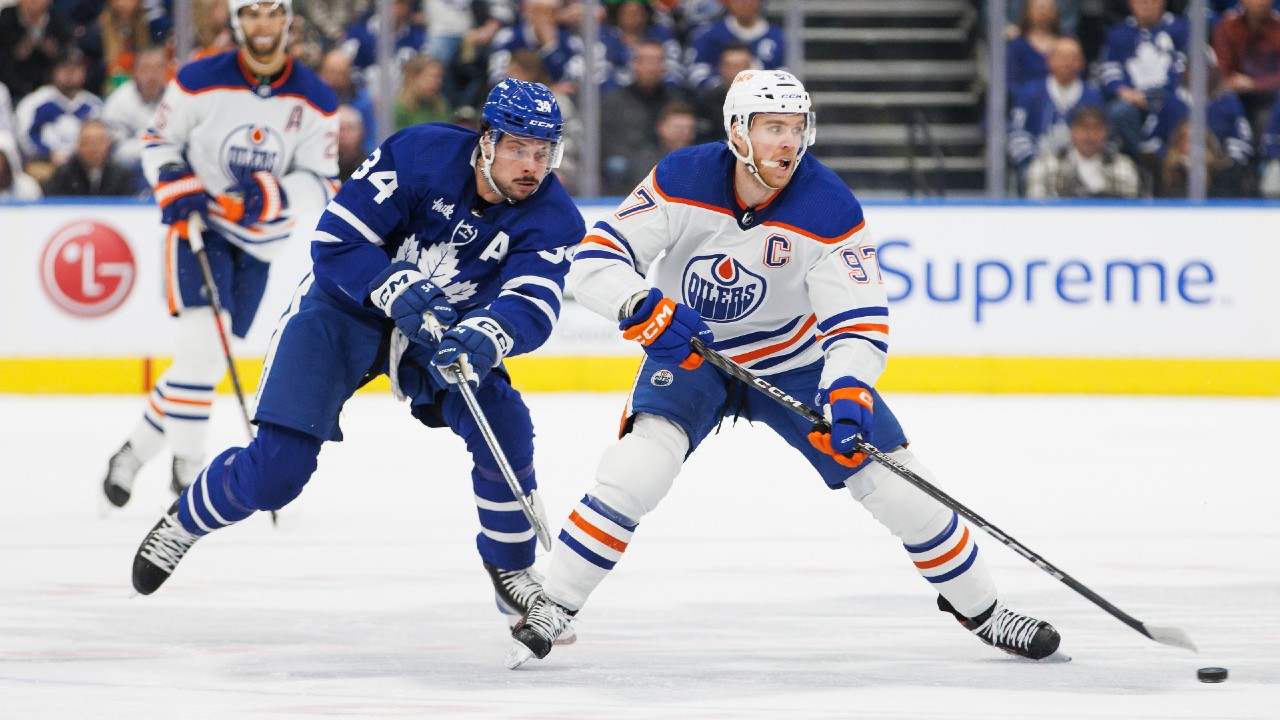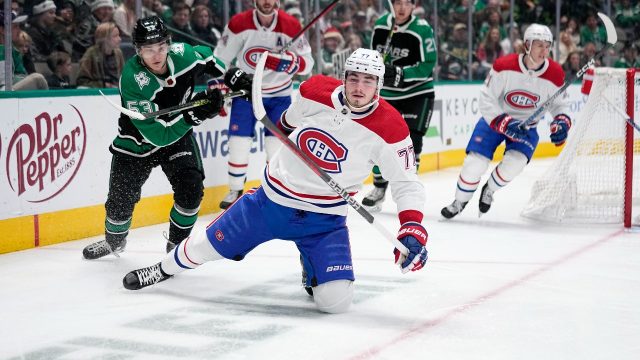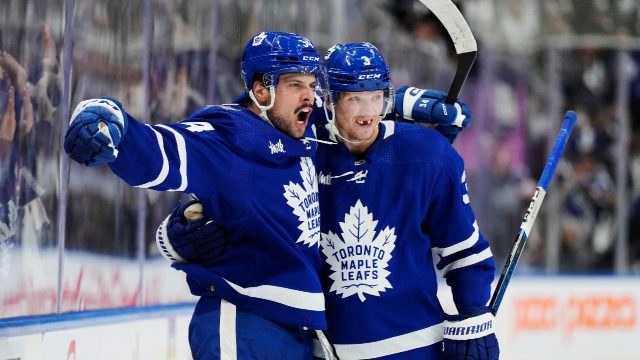
PHILADELPHIA – He was talking about practice. Not a game, not a game, practice. What was he talking about? Practice. How silly was that?
Not at all.
Twenty-one years after Allen Iverson’s iconic, mournful rant that will live forever, a punchline without context, Vancouver Canucks coach Rick Tocchet was back in Philadelphia on Monday and talking about practice.
About 40 minutes into the Canucks’ hour-long practice at the Wells Fargo Center, Tocchet admonished players for coasting through a drill.
It was assistant coach Mike Yeo who whistled the halt and told players to smarten up, and Tocchet backed him up and reminded players that ice time in games is earned at practice.
“Earn your f—— ice time,” he barked.
Tocchet had them skate “lines” for about five minutes at the end of the session.
Just as Iverson’s soliloquy during the 2002 National Basketball Association playoffs wasn’t really about practice, but about fairness and perception and sadness over the murder of his best friend that season, Tocchet’s reprimand wasn’t really about one lackadaisical drill in what was otherwise a fairly crisp workout.
It was about a Canucks team – a dizzying 2-0 for the first time in seven years – that has 80 games to go and a lot to learn about winning, which requires purpose, intensity and discipline every day, not merely when there are games.
Plucky and lucky while beating the Edmonton Oilers 4-3 on Saturday despite getting badly outshot and outplayed, the Canucks were given a day off Sunday by Tocchet. They visit the Philadelphia Flyers on Tuesday.
“I just felt last game, I think some guys didn’t earn their ice time,” Tocchet explained Monday afternoon. “I’ve told the guys that my big thing is the E word: there’s ‘earning’ and there’s ‘entitlement.’ I didn’t like some of our practice, even after that win. Mike Yeo is a veteran guy who knows it. I love that he stepped up, and I just wanted to reiterate it.
“It’s just accountability. I had some players come up to me and they know, they get it. I just don’t want to let that little brush fire turn into a forest fire. I can’t just let things go.”
Tocchet seized on a teachable moment.
“There’s a time and place,” he said. “I’ve got stay out of it (sometimes) and let the leadership group take care of it. I can’t always step in. Our leadership group is getting bigger and stronger. Sometimes they’ve got to take over.”
Through two games, the Canucks leadership group has been trying to set a new standard while driving a team that finally may be emerging from years of turmoil and disappointment.
Name a prominent Canuck who didn’t lead by example in the surprising season-opening sweep of the Stanley Cup-calibre Oilers. Captain Quinn Hughes and defence partner Filip Hronek averaged nearly 24 minutes and combined to go plus-nine. Winger Brock Boeser scored four goals in Vancouver’s 8-1 win on Wednesday, and centres Elias Pettersson and J.T. Miller outplayed Oilers Connor McDavid and Leon Draisaitl, mostly head to head, at five-on-five. Canuck goalies Thatcher Demko and Casey DeSmith were excellent.
On Monday, the National Hockey League named Pettersson its “second star” of the first week of the season. Proof of the soon-to-be 25-year-old’s evolution as a two-way centre is that his six points through two games are largely a footnote to his overall performance.
On Saturday, Pettersson’s 12:09 of even-strength ice time included 6:07 against Draisaitl and 5:15 against McDavid. And in a game in which his team was outshot 40-16, the Canucks outshot the Oilers 7-3 and outscored them 3-0 at five-on-five when Pettersson was on the ice. The Swede also logged 3:07 on the power play and 4:26 on the penalty kill.
Through two games, Pettersson’s shot-share is 58.6 per cent and his expected-goals 73.2 per cent.
If he has six more months of this, the Canuck will win the Selke Trophy.
“We talk a lot about staples, things we’ve got to bring every night,” Pettersson told reporters after practice. “It’s like every guy is going to do their job, and when everyone does their job, good things happen. And I think we started really well now for two games, so the hard part now is to continue doing it and not be satisfied.”
Pettersson’s game has a physicality about it that it once lacked. Sure, there were big, obvious hits on Cody Ceci in Game 1 and Draisaitl in Game 2, but Pettersson is now regularly using his strength and body positioning to shield and win pucks and protect the Canucks’ net.
“Yeah, I mean, I’ve gotten stronger, a little heavier, too,” he said. “So with that, I feel more comfortable winning battles and using my body more.
“I feel like I can protect the puck better and win more battles. I’m not getting pushed around as easily. I still fall down quite a bit but, I mean, I feel strong, more confident in battles. I don’t think I had done that well protecting the puck, but now when I’ve gotten stronger, I feel more comfortable holding on.”
“I think he understands what it’s going to take to win,” Tocchet said. “You know, like, the Sidney Crosbys of the world, Stevie Yzerman back in the day, Joe Sakic — those guys got their points, but they played a 200-foot game. They played situational hockey, and I think (Pettersson) knows that. He’s not bucking the system here.”
Tocchet said he shared a laugh with Pettersson when he told him he’d played with “every player on the team” against the Oilers. The coach double-shifted Pettersson and, including special teams, the centre logged at least a minute of playing time with eight of the 11 other Vancouver forwards.
“As an opposing player, a lot of times the little things that guys do get missed,” new Canucks defenceman Ian Cole said when asked about Pettersson. “You notice all the big things: the one-timer threat on the power play, deception, all the skill, all of his shooting, all of his passing. You notice that, but you don’t notice everything he does as much when you’re an opposing player.
“When you’re on his team, you see him laying guys out, winning puck battles, coming back on the back check, catching guys from behind. He’s not a loud guy, but when guys see him playing like that and doing all those things — arguably our best player, a 100-point guy, doing everything he can to win hockey games — how do you say: ‘I’m tired, I’m not going to backcheck?’ Or ‘I’m not going to win this puck battle.’ It’s really tough. He’s a massive leader on this team.”
- After missing the first two games with a knee injury, defenceman Carson Soucy fully practised alongside Noah Juulsen and looked likely to play against the Flyers. Tocchet said winger Ilya Mikheyev, out since last January after undergoing ACL knee surgery, should play before the five-game road trip ends next week. Injured defenceman Guillaume Brisebois (upper body) and centre Teddy Blueger (leg) are also on the trip but haven’t yet skated with the team.







